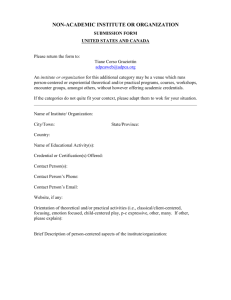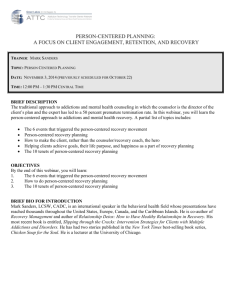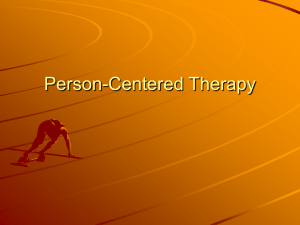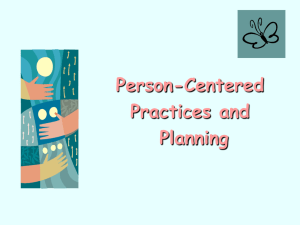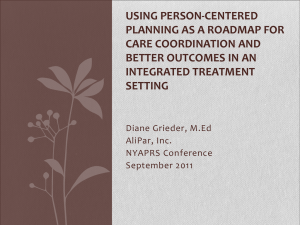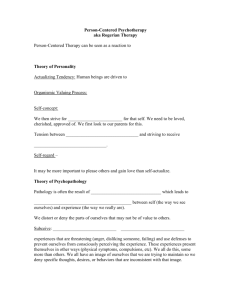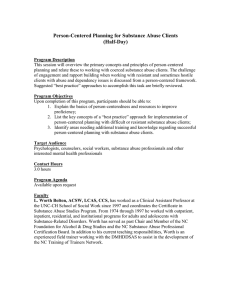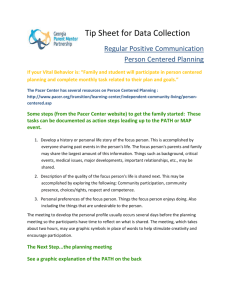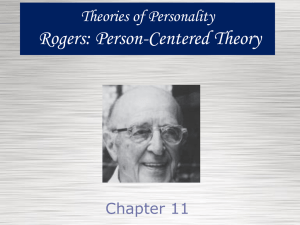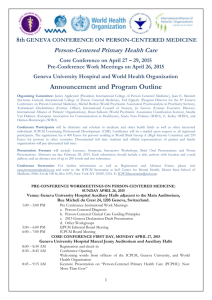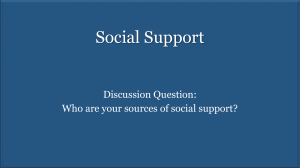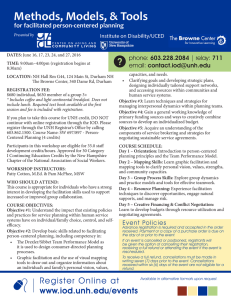What Does “Person- Centered” Mean?
advertisement
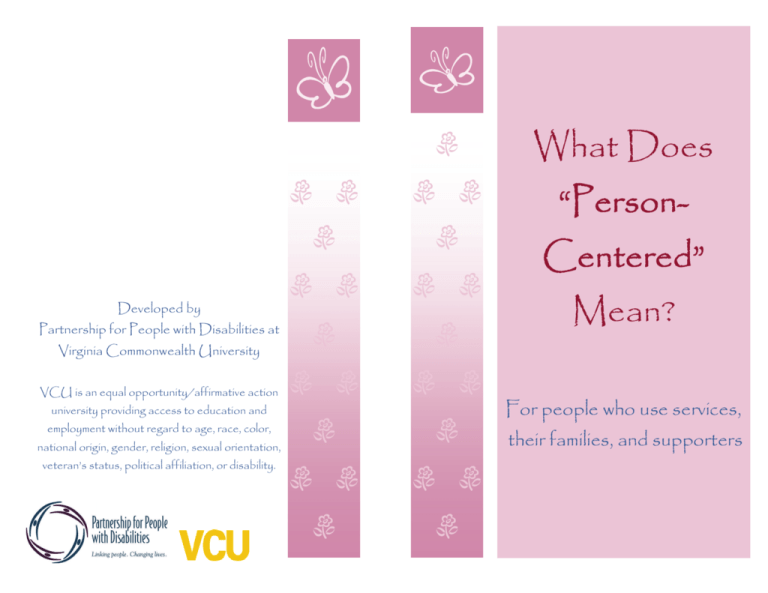
What Does “Person- Centered” Developed by Partnership for People with Disabilities at Mean? Virginia Commonwealth University VCU is an equal opportunity/affirmative action university providing access to education and For people who use services, national origin, gender, religion, sexual orientation, their families, and supporters employment without regard to age, race, color, veteran’s status, political affiliation, or disability. Agencies that use person-centered practices to support people: Many thanks to The Learning Community for Person-Centered Practices and Team 6, a small group of self-advocates and supporters for their guidance and direction Support staff members in practicing personcentered thinking and planning Match staff to the people they support based on skills and personality Make sure that staff know their core responsibilities (those things they have to do) and where they can use judgment and creativity (where they can try different ways). They also know what is private and respect the individual’s privacy Review and update plans on an ongoing basis so that they plan changes with the person Ensure that a person’s property and money are in the person’s control Are flexible and creative in the ways they support people Frequently ask, “What is working, what is not working, and what do we still need to learn?” When people are supported in person-centered ways they: Are listened to and have voices Have choice and are responsible for those choices Have joy, happiness, and purpose Have plans for the present and the future Live in places of their choosing Have family and friends that they see often Work and contribute to their community Are a valued member of their community and are involved in groups, organizations, and social activities that interest them Have transportation they can count on Have their own money and control over how it is spent Learn new things Are healthy and safe Are able to do things they want to do Person-Centered Practices are ways of: Listening to and learning about what people want in their everyday lives Helping people take and maintain control of their lives Working together with a person and their family, friends and professionals to support them in living the life they want Emphasizing connection and contribution to the community Recording information in a person centered plan Doing business that puts the person being supported in the center Giving hope for a good life “The person at the focus of planning, and those who love the person are the primary authorities on the person’s life direction.” ~John O’Brien & Herb Lovett A Person-Centered Plan may include: A positive description of the person. This includes what people like and admire about the person, his or her gifts, talents, capacities and contributions. Who is important to the person. This includes family, friends, and paid professionals. What is important to the person. This includes his or her likes, preferences and routines. What is important for the person. This includes what the person needs to stay healthy and safe and to be a valued member in his or her community. What others need to know or do to support the person. Documentation of the best ways to communicate with the person. What the characteristics are of the people who best support the person. An action plan that says who will do what by when. Evidence that the plan is updated as learning occurs.
